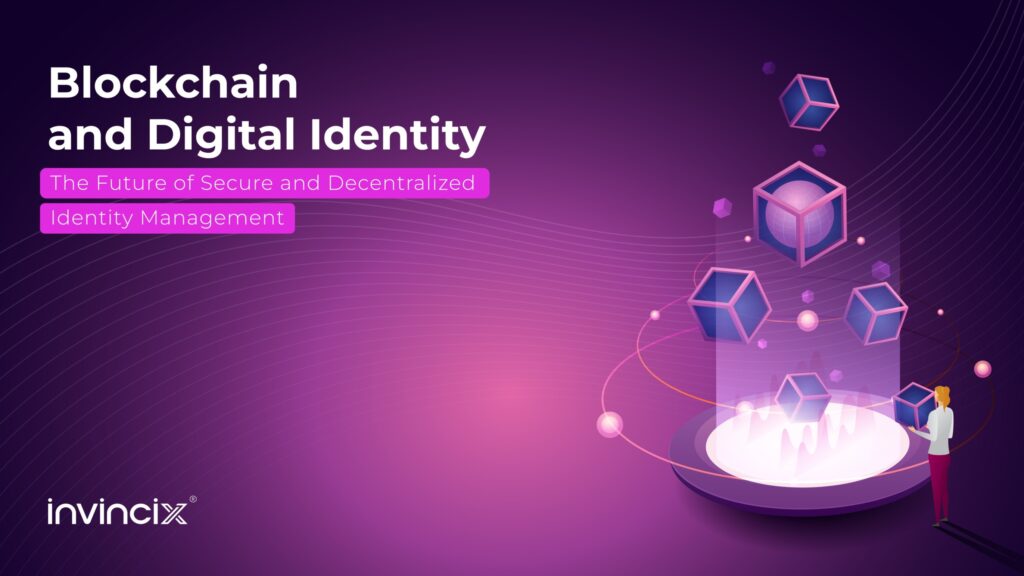
Digital identity management is defined as a one-to-one relationship between a human and their digital presence of personal information. It is the key to securing your online presence. Digital identity management allows you to confirm authenticity when conducting secure online transactions without showing any physical identity documents.
According to the GMI research, the digital identity solution market was valued at $25.3 billion in 2022 and is expected to register at a CAGR of 16.5% between 2023 and 2032, which offers better security. Digital identity management is a part of our future that will automatically influence how we live.
The challenges of traditional identity management
Traditional identity management systems usually depend on intermediaries that face several limitations:
Data violations and privacy concerns
The compact storage of sensitive personal data makes it a premium target for cyberattacks, exposing individuals to the risk of identity privacy violations.
Lack of user control
People often have limited control over their data, depending on intermediaries to manage and share it on their behalf.
Fragmented identity perspective
Digital identities are often spread across multiple platforms and service providers, making it difficult to manage and verify them consistently.
How does blockchain technology address these challenges?
Blockchain technology is an advanced database that allows transparent information sharing within a business network. It’s improving security and privacy. Benefits of blockchain on cyber security and data privacy.
Decentralization
A network that uses blockchain is shortened. It is a form of a system that does not use a central authority to manage identity data . The need for a central authority can cause single point of failure constraints by unauthorized third-party hackers. Where, decentralization makes it difficult for hackers to access information or manipulate it.
Security
Blockchain solution security model that can manage all business, administration, technology and process risks. It consider the threats to the blockchain solution and create a threat model
User control
Blockchain allows independent identity, authorizing individuals to have full control over their identity data. Users can manage and share their information securely without depending on intermediaries.
The real-time applications of blockchain-based digital identity management can be played in various industries.
Secure identity verification
Blockchain-based digital identity management can securely confirm the identity of people for several applications. Blockchain can improve the safety of identity verification by eliminating the requirement for third-party centralized verification services and prevents identity scam.
Supply chain management
SCM can track and manage supply chain data using blockchain-based digital identities, improving clarity and security. These identities can be employed to generate digital identities for items, which may be used to track the flow of excellence around the supply chain by supply chain administrators .
Healthcare records
Patients can create and manage their own digital identity while helping healthcare suppliers to verify the accuracy of patient records and medical histories in a safe and sound manner. This will create better consumer care while also ensuring consumer data privacy.
The current trends and future prospects for blockchain-based digital identity management.
Blockchain trends of recent developments could shape the circle of blockchain as an enterprise technology.
Growth of decentralized finance
Blockchain investment continues to be most significant in the financial sector, specifically cryptocurrency.
Privacy and security improvements
Continued research and development efforts will also focus on improving the privacy and security of blockchain-based digital identity management, including zero-knowledge proofs multi-factor authentication and privacy-preserving computer protocols.
Enterprise investment
Investments in blockchain are done by companies for smart contracts, identity and supply chain management, and compliance.
Web 3.0 integration
Digital identities based on blockchain would be an essential aspect of Web 3.0, the decentralized web.
NFTs for business
Business people are utilizing non-fungible tokens to create new income sources from digital assets.
The future prospects in blockchain-based digital identity management include “the evolution of digital identity”. Blockchain-based digital identity management could make processes such as know your customer (KYC) outdated by eliminating the need for duplicate identity verification for different services.
Final thought
Traditional identity management systems have long gap with issues of security violations, lack of control by the user, and also fragmented concepts of identity. The future possibilities for blockchain-based digital identity management are promising. Blockchain’s decentralized foundation allows without the need for the business as an intermediary, more increasingly, security, privacy, and total control by users over their data.
Together, with blockchain technology and Invincix’s services, we build the way for a future where digital identities are not just secure but authorise individuals with control and privacy in the digital kingdom.